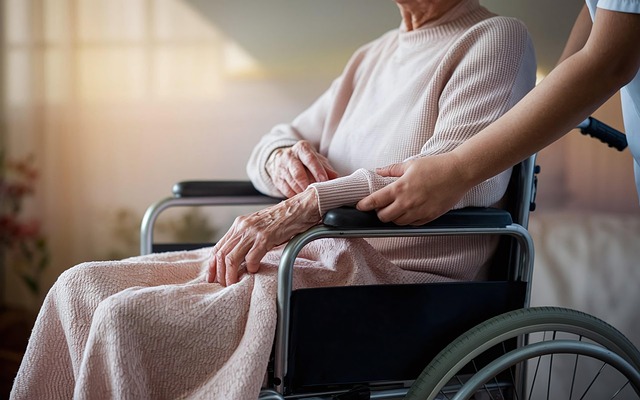Elderly sexual assault survivors in Newark benefit from Animal-Assisted Therapy (AAT/CAT), a gentle and calming approach using animals like dogs or horses to reduce anxiety, promote emotional well-being, and encourage sharing of experiences. Specialized elderly sexual assault lawyers in Newark advocate for clients' rights and collaborate with healthcare professionals to facilitate access to CAT sessions tailored to survivors' needs. These attorneys bridge the gap between legal and medical communities, providing both legal support and care facilitation for holistic healing. By leveraging CAT along with dedicated legal representation, survivors can improve mental health, lower stress hormones, foster social connections, and navigate complex legal processes effectively.
In Newark, animal-assisted therapy (CAT) is emerging as a powerful tool for healing elderly sexual assault survivors. This innovative approach, often facilitated by dedicated elderly sexual assault lawyers and attorneys at local law firms, combines the therapeutic benefits of human-animal interaction with the legal support needed to navigate complex cases. By understanding CAT’s gentle yet effective methods, we can appreciate its role in empowering survivors and enhancing the overall legal process, from initial consultation to resolution.
Understanding Animal-Assisted Therapy: A Gentle Healing Approach for Survivors
Animal-Assisted Therapy (AAT) is a gentle and effective approach to healing for elderly sexual assault survivors in Newark. This method leverages the power of animals, often dogs or horses, to provide comfort, reduce anxiety, and promote emotional well-being. Unlike traditional therapy sessions that can be challenging, AAT offers a calming environment where survivors can reconnect with their emotions at their own pace. The interaction with these compassionate creatures helps break down barriers and encourages clients to open up about their experiences in a way that might be more difficult in a conventional therapy setting.
For elderly sexual assault survivors, the benefits are profound. AAT sessions can improve mental health by reducing symptoms of PTSD, depression, and anxiety. The simple act of petting an animal or participating in low-impact activities with horses can lower stress hormones and create a sense of safety and trust. Moreover, it provides an opportunity for social interaction, fostering connections that can be especially valuable for seniors navigating the aftermath of such traumatic events. With dedicated elderly sexual assault lawyers in Newark advocating for their rights, AAT serves as another powerful tool to support survivors on their path to healing and recovery.
The Role of Newark's Elderly Sexual Assault Lawyers in Facilitating CAT
In Newark, elderly sexual assault lawyers play a pivotal role in facilitating Animal-Assisted Therapy (CAT) for survivors. These legal professionals are well-versed in the unique needs and challenges faced by the elderly victims of sexual assaults. They work closely with healthcare providers, therapists, and animal handlers to ensure that CAT sessions are both safe and effective. By understanding the therapeutic benefits of animal interaction, these lawyers advocate for their clients’ rights, making sure they receive the best possible care.
Newark’s elderly sexual assault attorneys also bridge the gap between legal and medical communities. They help in navigating complex legal processes while promoting a holistic healing approach. Through collaboration with local animal-assisted therapy programs, they ensure that survivors have access to these innovative treatment methods. This dual role—legal advocate and facilitator of care—is crucial in supporting elderly sexual assault survivors on their journey towards recovery.
Benefits and Challenges: How CAT Can Support Elderly Survivors and the Legal Process
Animal-Assisted Therapy (CAT) offers unique benefits for elderly sexual assault survivors in Newark. The therapeutic bond formed with an animal can provide comfort, reduce anxiety, and encourage emotional expression—crucial aspects of the healing process. Cats, dogs, or even horses can serve as a non-judgmental presence, fostering a sense of safety and trust, which is often challenging to attain for victims of sexual assault. This method can enhance communication, especially when survivors struggle with verbalizing their experiences.
Despite its advantages, CAT in this context also presents challenges. Ensuring the privacy and comfort of elderly survivors during therapy sessions is essential, requiring careful consideration and tailored approaches. Moreover, navigating legal processes surrounding evidence collection and admissibility in court cases featuring CAT as a form of proof may be complex. Newark-based elderly sexual assault lawyers or attorneys at reputable firms specializing in these cases can provide guidance on utilizing CAT as valid and compelling evidence while addressing potential challenges.






